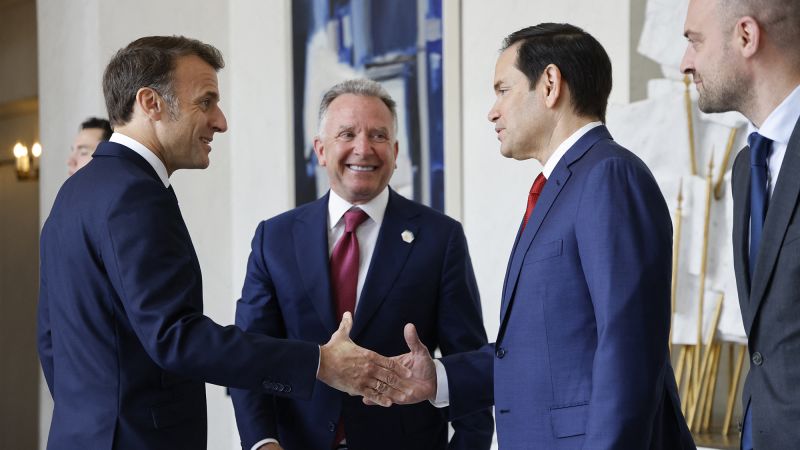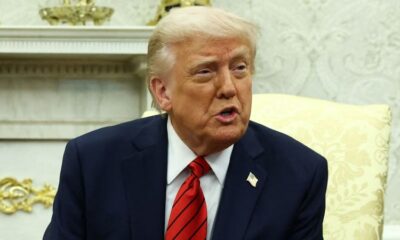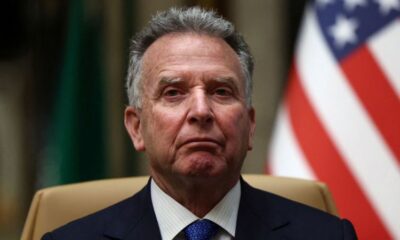CNN
—
US Secretary of State Marco Rubio and Steve Witkoff, President Donald Trump’s international envoy, held high level talks with Ukrainian and European officials in Paris at a summit Thursday aimed at bolstering Ukraine’s defenses against Russia’s unrelenting invasion.
Ukrainian and US officials had an “excellent exchange” with their British, French and German counterparts, an Elysée source said following the talks, with the meetings in Paris providing “a very strong strategic opportunity.”
Ukraine and the three European countries stressed their shared support for Trump’s efforts to bring about a rapid end to the war, according to the source.
More meetings will take place next week in London in the same format, the source added. State Department spokesperson Tammy Bruce would not say whether Rubio would attend the discussions.
French President Emmanuel Macron said Thursday’s talks marked “a day of diplomatic mobilisation,” in a post on social media.
“Today, we engaged in a positive and constructive discussion on how to achieve both a ceasefire and a comprehensive, lasting peace,” Macron said.
Zelensky thanked Macron for his leadership and for the work in Paris by representatives from the attending countries, in a post on social media.
“It is important that we hear each other, refine and clarify our positions, and work for the sake of real security of Ukraine and all (of) our Europe,” he said.
Elsewhere, Trump told reporters Thursday that the United States would be “hearing” from Russia “this week” on the US proposal for a ceasefire between Russia and Ukraine.
“We’re going to be hearing from them this week, very shortly, actually, and we’ll see. But we want it to stop. We want the death and the killing to stop,” the president told reporters in the Oval Office.
Trump added that while he is not a “big fan” of Zelensky, he does not hold the Ukrainian leader responsible for the war.
“I don’t hold Zelensky responsible, but I’m not exactly thrilled with the fact that that war started. That was a war that would have never started if I were president,” Trump told reporters.
If Trump’s pledge to end the war in a day was far-fetched, the hope to secure a full truce by Easter – this weekend – also looks likely to fail. Russia has ramped up its strikes on Ukraine in recent weeks, despite Washington’s overtures to Moscow.
For Ukraine’s European allies, the summit offered a chance to gauge the Trump administration’s thinking on the war in Ukraine. Kyiv and its allies have been alarmed by Trump’s and Witkoff’s parroting of Kremlin talking points, and may have viewed the talks as a chance to disrupt and dislodge those perceptions.
After meeting Russian President Vladimir Putin for a third time last week, Witkoff told Fox News that any peace deal in Ukraine will center on the “so-called five territories,” referring to Crimea, the Ukrainian peninsula Russia annexed in 2014, and the four mainland Ukrainian regions Russia has occupied since its full-scale invasion in 2022, having previously suggested Ukraine may have to cede them under a truce.
Oleksandr Merezhko, a member of Ukraine’s parliament, told CNN Tuesday that Witkoff “with all due respect… may be inadvertently trying to push pro-Russian narratives.”
Despite its ambitious pledges, the Trump administration has struggled to broker a lasting peace deal between the warring countries, and has been accused of using mostly sticks in its dealing with Ukraine while saving its carrots for Russia.
After the White House briefly cut weapons supplies and intelligence sharing to Ukraine in March, Kyiv swiftly agreed to the US proposal for a 30-day ceasefire.
Following separate talks with Russian and Ukrainian officials later that month, the White House said both had agreed to the ceasefire on energy infrastructure and in the Black Sea – only for the Kremlin to announce it would only implement the agreement when sanctions imposed on its banks and exports are lifted.
The Center for Countering Disinformation, a Ukrainian think-tank, has pointed out that the supposed truce has done little to constrain Russia’s aggression. In the 22 days after the truce, the Russian army killed nearly 2.5 times more Ukrainians than during the same period before it was announced, the Center said in an update Tuesday.
In a sign of growing irritation with Moscow, Trump last week said that “Russia has to get moving,” but provided no deadlines or ultimatum if it did not.
While the Paris summit was underway, Kirill Dmitriev, a top Russian negotiator, claimed that many countries are trying to “disrupt” Russia’s dialogue with the US. He said Putin’s latest meeting with Witkoff was “extremely productive,” but that the dialogue was taking place in “very difficult conditions – constant attacks, constant disinformation.”





















